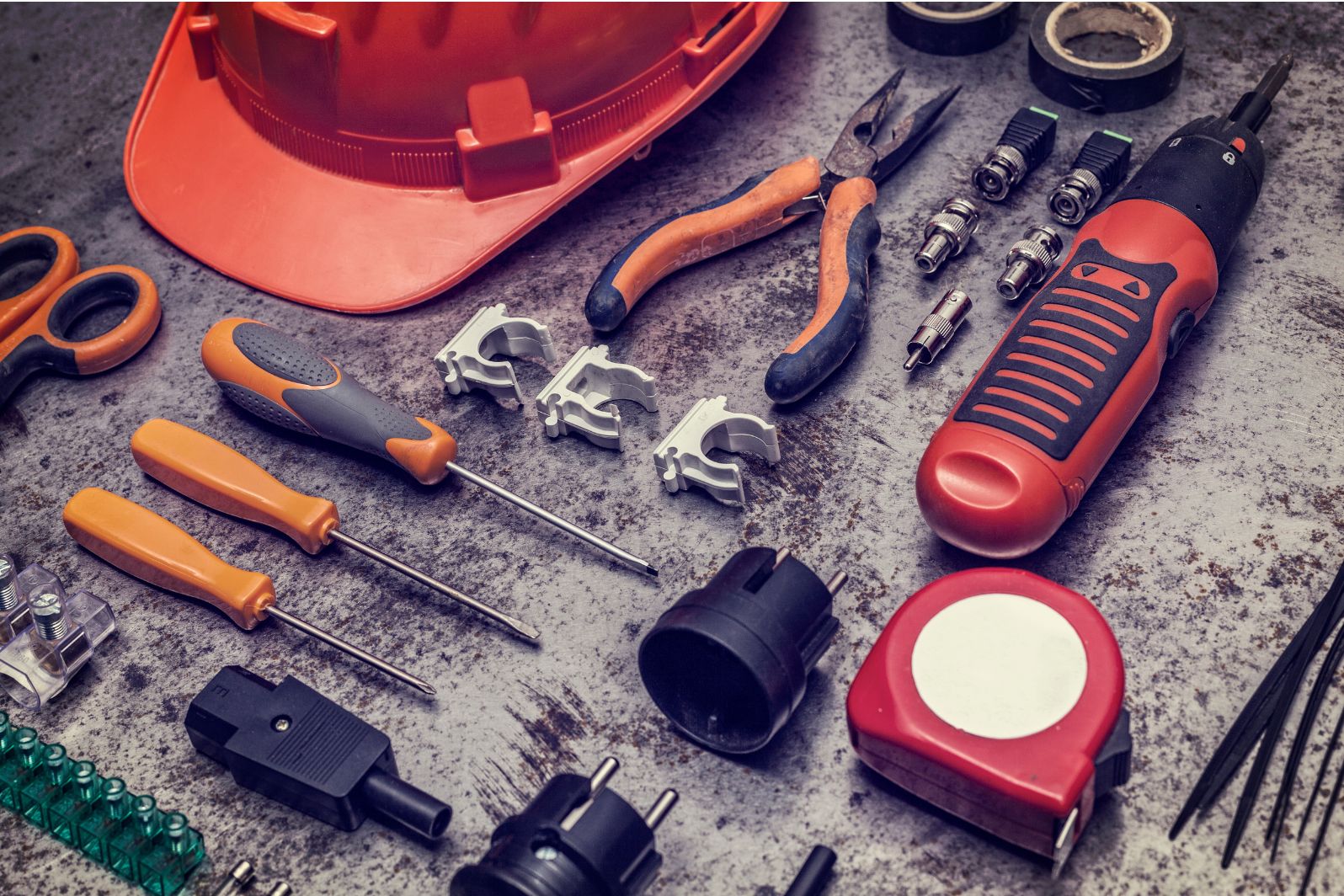Electrical repairs are necessary for any homeowner or handyman, but they can also be dangerous if not done properly. As a handyman electrician, it is important to prioritize safety first when handling any electrical repairs.
Here are some tips and precautions to keep in mind:
Table of Contents
Understanding the Basics of Electricity
Before even attempting to handle any electrical repairs, it is crucial to have a basic understanding of electricity.
Voltage and Amperage
Voltage refers to the force or pressure of electricity, while amperage measures the amount of electrical current flowing through a circuit. It is important to know the voltage and amperage requirements for any electrical device before attempting to work on it.
Resistance and Conductivity
Resistance is the measure of how much a material restricts the flow of electricity, while conductivity measures how easily electricity can pass through a material. Materials with high resistance, such as rubber and plastic, are good insulators and should be used to cover electrical cords. On the other hand, materials with high conductivity, like metal, can conduct electricity and should be handled with caution.
Grounding
Grounding keeps electricity from building up and causing shock or damage. Make sure all outlets and electrical devices are properly grounded according to local building codes.
Circuit Breakers and Fuses
Circuit breakers and fuses prevent overloaded circuits and put out flames. Get familiar with your home’s breaker or fuse box so that you can quickly turn off the electricity in an emergency.
Equipment and Tools
Having the right equipment and tools is crucial for safe electrical repairs.
Insulated Tools
Always use insulated tools when working with electricity to prevent electric shock. Make sure they are in good condition and free from any cracks or damage.
Personal Protective Equipment (PPE)
Wearing proper PPE, such as goggles, gloves, and non-conductive footwear, can further protect you from potential hazards while working on electrical repairs.
Fire Extinguisher
Always have a fire extinguisher nearby when working with electricity, just in case of any accidental fires.
Safety Precautions
In addition to understanding the basics of electricity and having the right equipment, there are also important safety precautions to follow when handling electrical repairs.
Turn off the Power
Always make sure to turn off the electricity at the fuse or breaker box before beginning any electrical repairs. Make sure there is no electricity running through the circuit you plan to operate on by using a voltage tester.
Do Not Work Alone
In the event of an emergency, it is always preferable to have another person close by. Make sure someone is aware of your whereabouts and the anticipated duration of your task if you are working alone.
Check for Moisture
Moisture can increase the risk of shock or electrocution, so make sure to check for any wet areas before working on an electrical repair.
Keep a Safe Distance
Be cautious of your surroundings and avoid standing in water or wet areas while working on electrical repairs. Keep a safe distance from power lines and other sources of electricity.
Avoid Overloading Circuits
Do not plug too many appliances or devices into one outlet, as it can cause the circuit to overload and potentially start a fire. Spread out your electrical use across multiple outlets and circuits.
Use High Quality Products
When purchasing electrical devices or materials, make sure to choose high-quality ones from reputable shops like Duraline. Cheap or faulty products can increase the risk of accidents or malfunctions. Affordable electrical services and equipment are widely available but always prioritize quality and safety over cost.
Label Breakers and Fuses
Labeling your breaker box or fuse box can save you time and confusion in case of an emergency. Make sure to clearly label which circuits correspond to each switch or fuse.
Follow Codes and Regulations
Always follow local building codes and regulations when handling electrical repairs. These codes are in place for a reason, to ensure safety and prevent accidents.
Stay Updated
Electrical safety standards and regulations are constantly evolving, so it is important to stay updated on any changes. Attend workshops or training sessions to learn about the latest safety practices.
Know When to Call a Professional
If you are unsure about how to handle a particular electrical repair, it is best to call local handyman experts. Do not attempt any repairs that are beyond your skill level.
Common Electrical Repairs
Here are some common electrical repairs that every handyman electrician should know how to properly handle:
Replacing an Outlet or Switch
This involves turning off the power, disconnecting the old outlet or switch, connecting the new one following proper wiring techniques, and testing to ensure it is working correctly.
Installing a Ceiling Fan or Light Fixture
Similar to replacing an outlet or switch, this involves installing the necessary electrical box and wiring connections before mounting and securing the fan or light fixture.
Repairing a Breaker Box or Fuse Box
If you notice any damage or malfunction in your breaker box or fuse box, it is important to call a professional electrician to handle repairs. Do not attempt to fix it yourself as it can be dangerous.
Emergency Procedures
Despite taking all the necessary precautions, accidents can still happen. It is important to be prepared and know what to do in case of an emergency.
Electric Shock
If someone gets an electric shock, quickly turn off the power at the breaker or fuse box. Then, call for medical help right away. Stay calm and make sure the person is safe until help arrives.
Electrical Fire
If an electrical fire starts while you are working on electrical repairs, use a fire extinguisher to put out the flames. If you can’t stop the fire, leave the area right away and call 911 for help. Always make sure you stay safe and follow these steps to avoid any danger.
Hire a Handyman Electrician Now!
As a handyman electrician, safety should always be your top priority when handling electrical repairs. By following these tips and precautions, you can protect yourself and others from potential hazards and ensure successful and safe repairs. Remember to stay updated on safety practices and never hesitate to call a professional if needed. Stay safe while keeping your home’s electrical systems in check!
Is this article helpful? Keep reading our blog for more.


